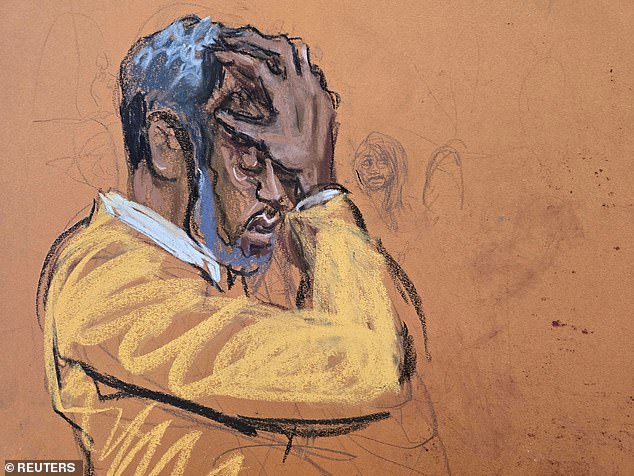Sean “Diddy” Combs is learning the hard realities of life behind bars as he prepares for eventual release.
The music mogul, 55, recently submitted a request to serve his four-year sentence at a low-level New Jersey prison, and court documents reveal the strict conditions he will have to follow once free.
Supervised Release and Probation Rules
According to the documents obtained by the Daily Mail, Diddy will be under supervised release for five years.
This includes regular check-ins with his probation officer, mandatory drug testing, and participation in outpatient programs covering mental health and domestic violence.
His probation officer will have the authority to drop in at any time, and Diddy must live at an approved residence.
He will also be subject to searches of his property, vehicles, electronics, and personal papers if there is reasonable suspicion of a violation.
Restrictions on Weapons and Work
The rapper is prohibited from owning or accessing firearms, ammunition, destructive devices, or any dangerous weapons.
Additionally, he must work at least 30 hours per week and avoid contact with anyone involved in criminal activity.
Despite his estimated $400 million fortune, Diddy has faced challenges liquidating his Beverly Hills mansion, which he quietly listed for $61.5 million just a week before his 2024 arrest.
His sprawling Los Angeles estate, which hosted star-studded parties, has yet to sell, reflecting the stark contrast between his former luxury life and current prison reality.
Prison Facility Request
Since September 2024, Diddy has been housed in the Metropolitan Detention Center (MDC) in Brooklyn, a facility known for its harsh conditions.
His legal team has requested that he be moved to FCI Fort Dix, a low-security prison in New Jersey, citing access to the Residential Drug Abuse Treatment Program (RDAP) and other rehabilitative programs as a reason for the move.
RDAPs are intense, nine-month programs comparable to Alcoholics Anonymous, focusing on addiction treatment, work, and educational activities.
Completion can sometimes lead to up to a one-year reduction in sentence.
However, experts note that prisoners convicted of sexual offenses—like Diddy—are typically ineligible for these programs.
Reflections and Regret
In court, Diddy admitted that his time in federal custody has marked the first period of sobriety in 25 years.
He reflected on his past mistakes, including a violent incident involving his ex-girlfriend, acknowledging he was “dead wrong” for his actions.
While describing the MDC’s harsh conditions—windowless cells, lack of clean drinking water, and fears for his safety—Diddy has also found ways to contribute.
He has led an entrepreneurship course for fellow inmates, teaching foundational business knowledge.
Legal Hurdles Ahead
Judge Arun Subramanian has yet to respond to Diddy’s request for relocation.
Previous requests from the rapper, including overturning his conviction or allowing a new trial, have been denied.
Experts suggest that while his legal team may hope for a special waiver similar to what was granted to Ghislaine Maxwell, it remains highly unlikely given federal policies on sex offenders in prison camps.
Diddy’s sentence includes a $500,000 fine, and with 13 months already served, his anticipated release date is November 2028, provided all conditions and rules of supervised release are met.
Share on Facebook «||» Share on Twitter «||» Share on Reddit «||» Share on LinkedIn
